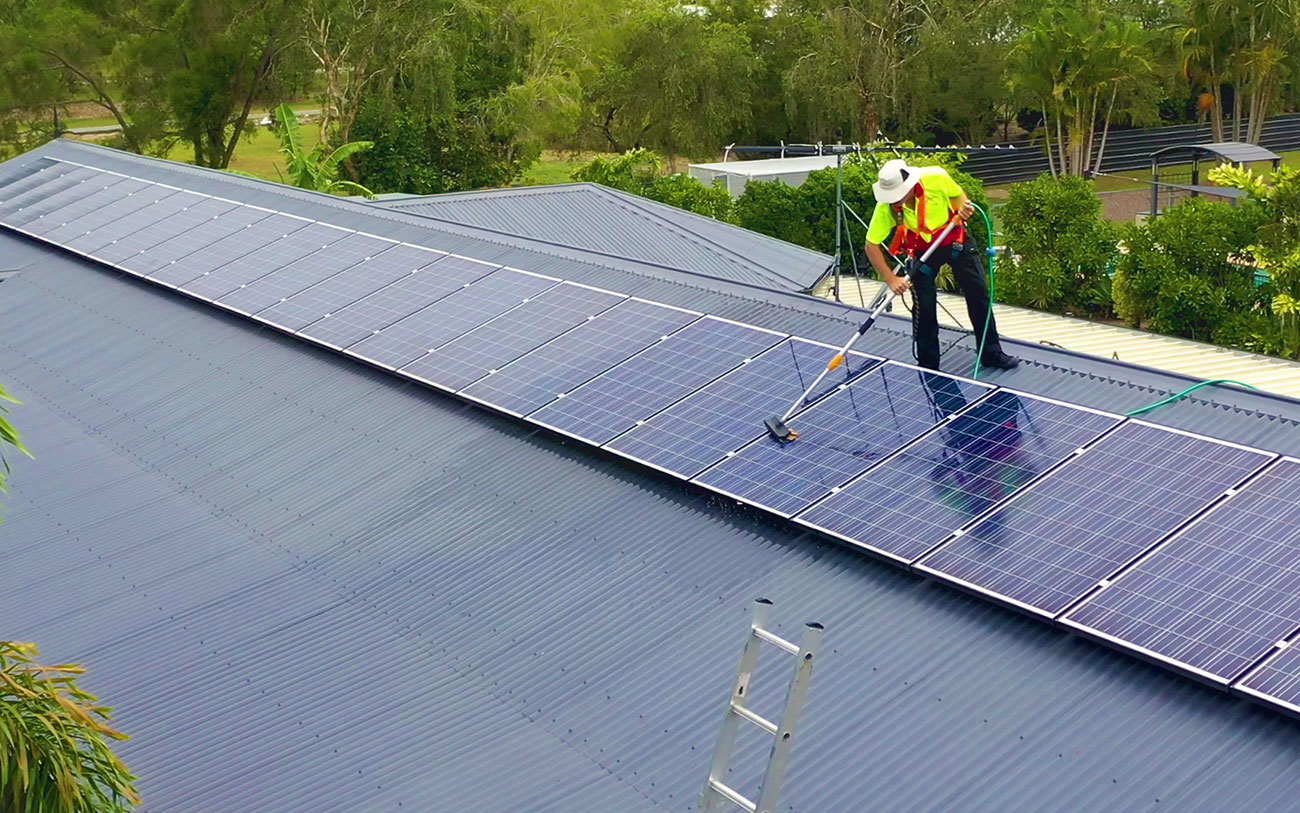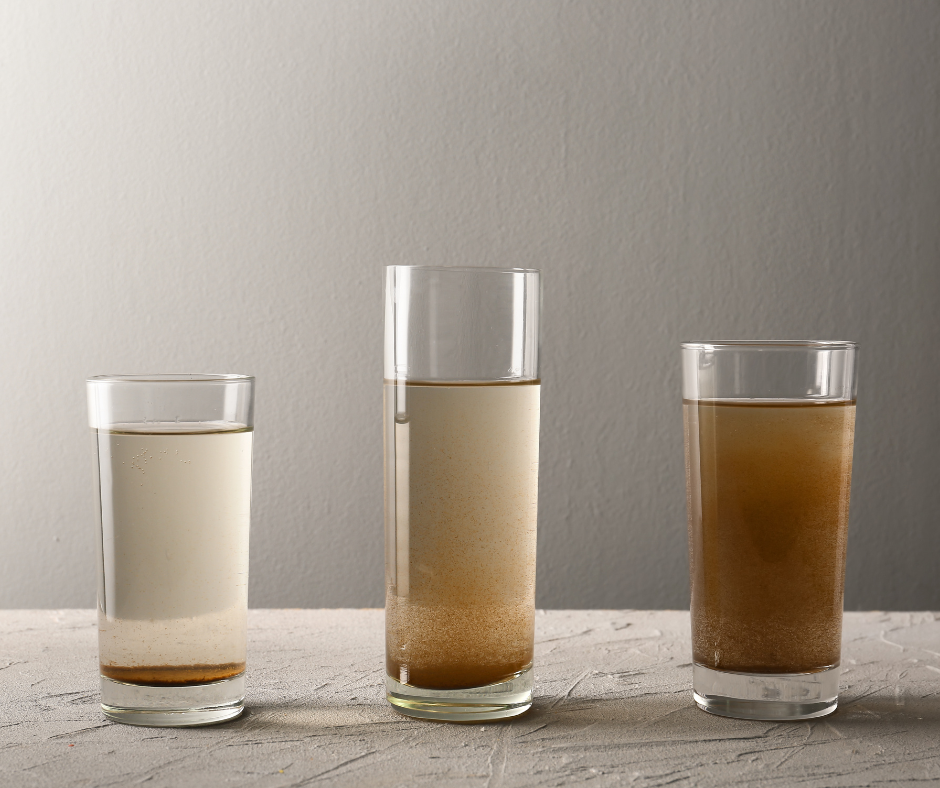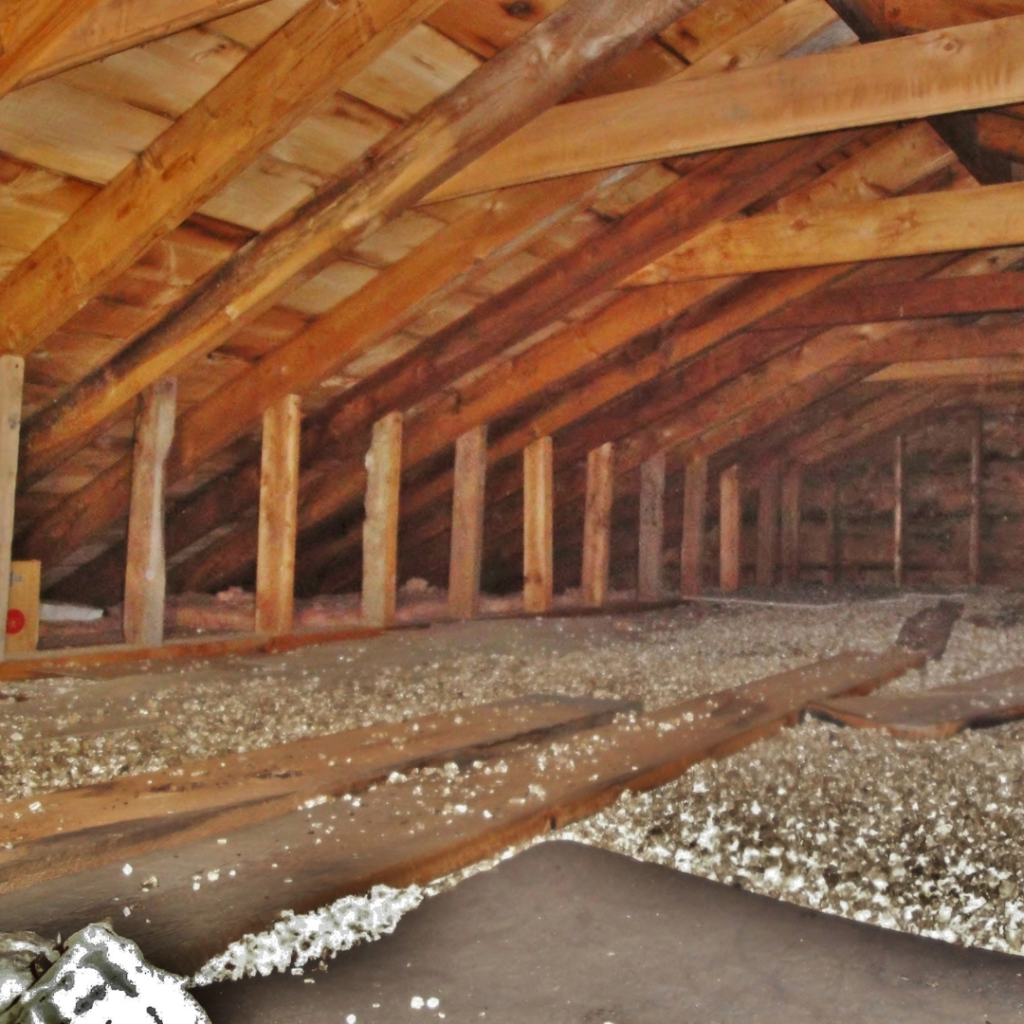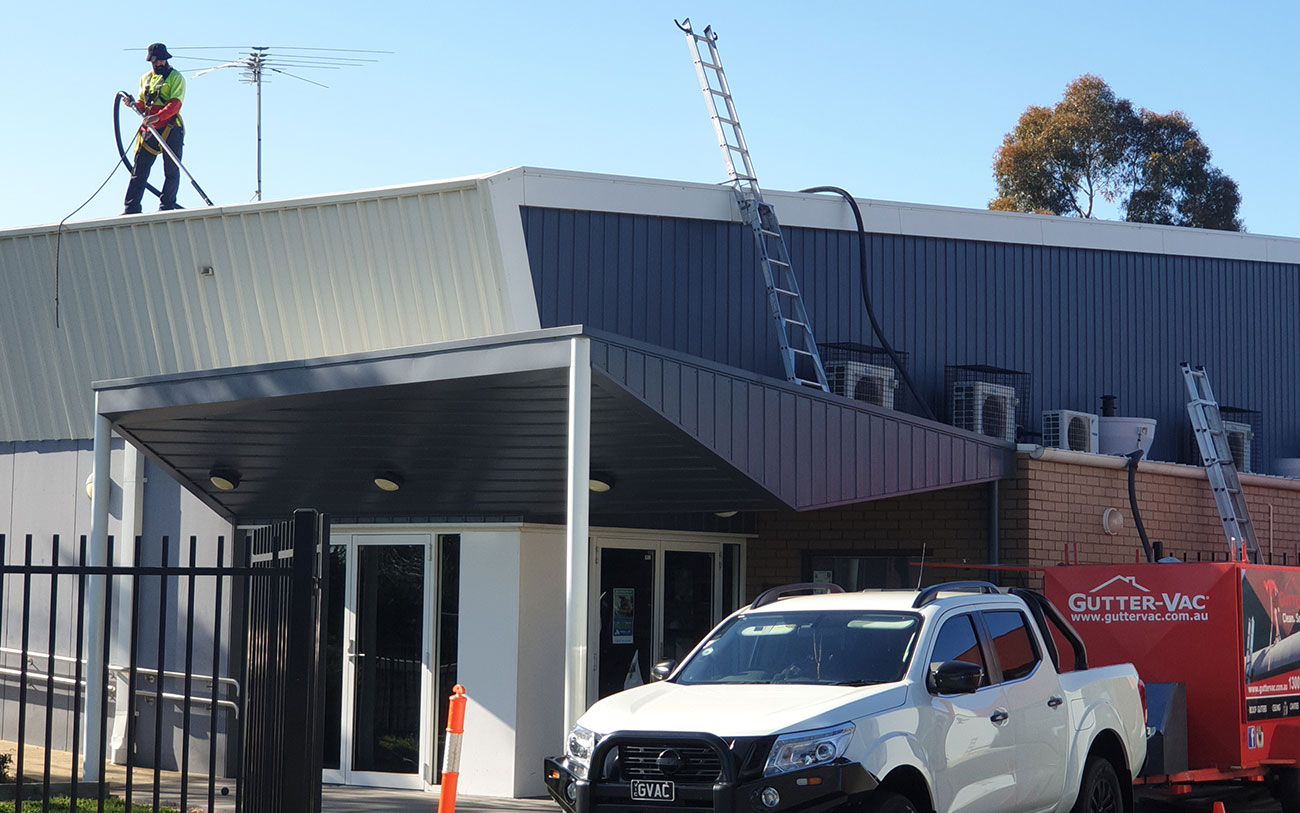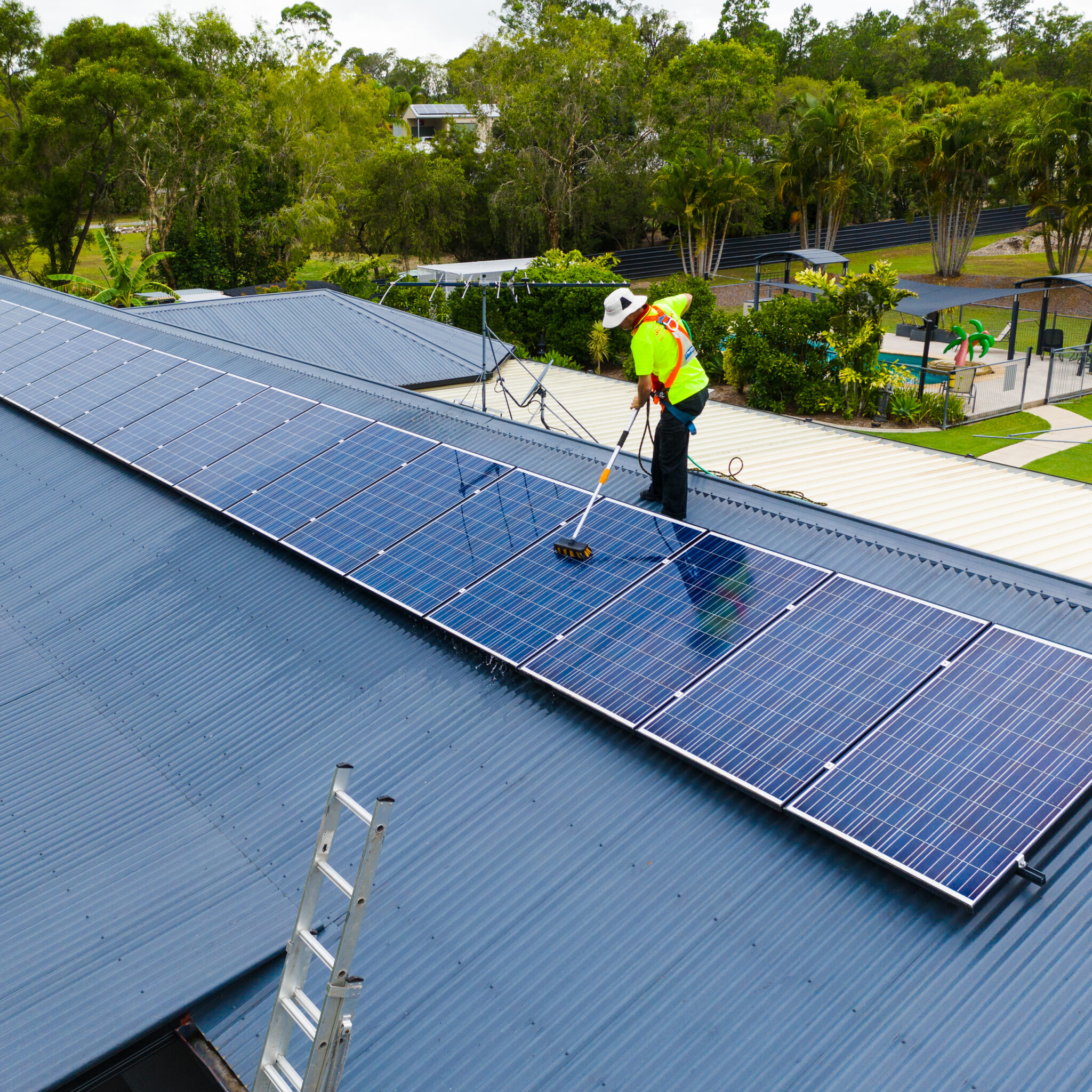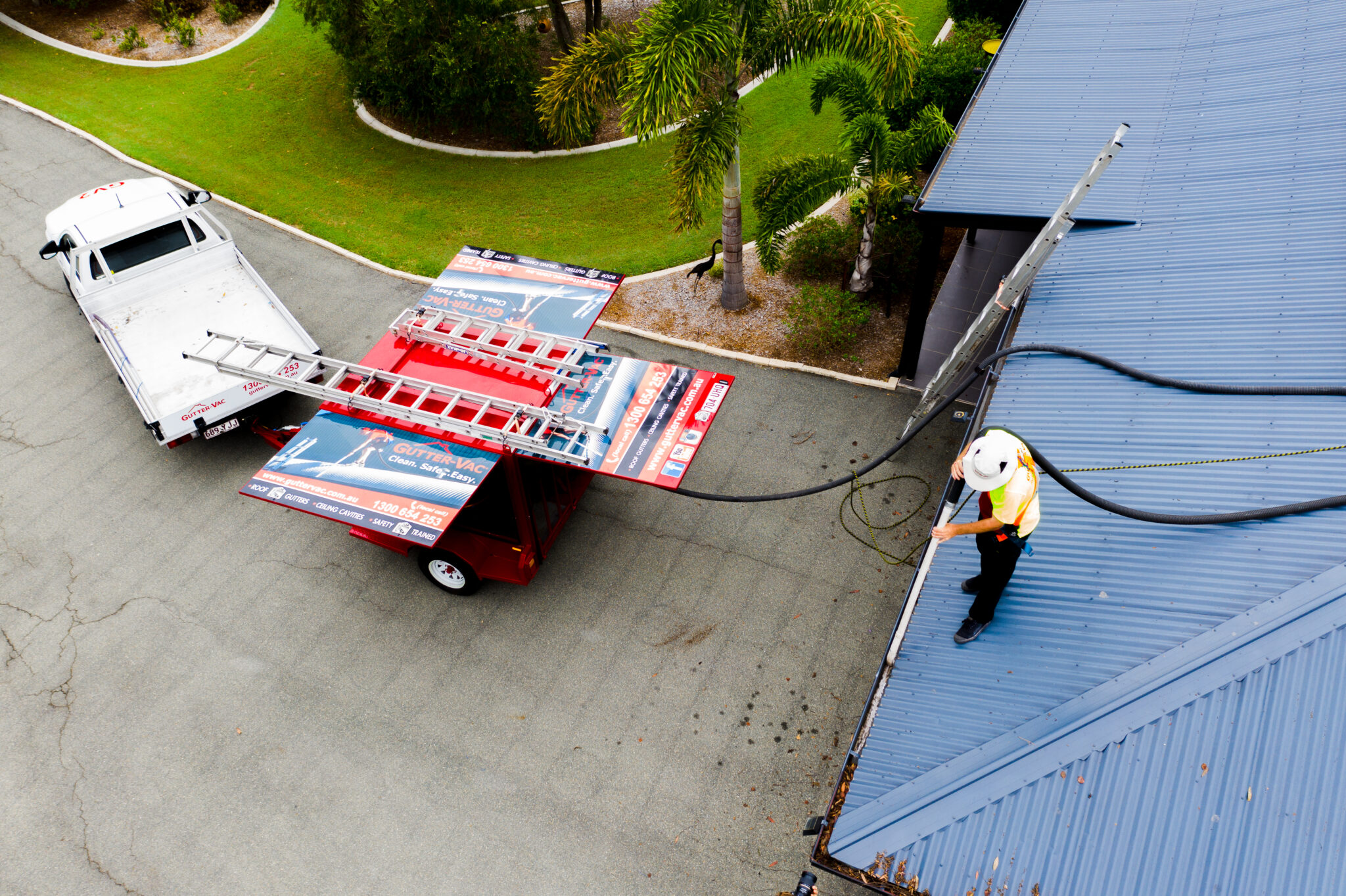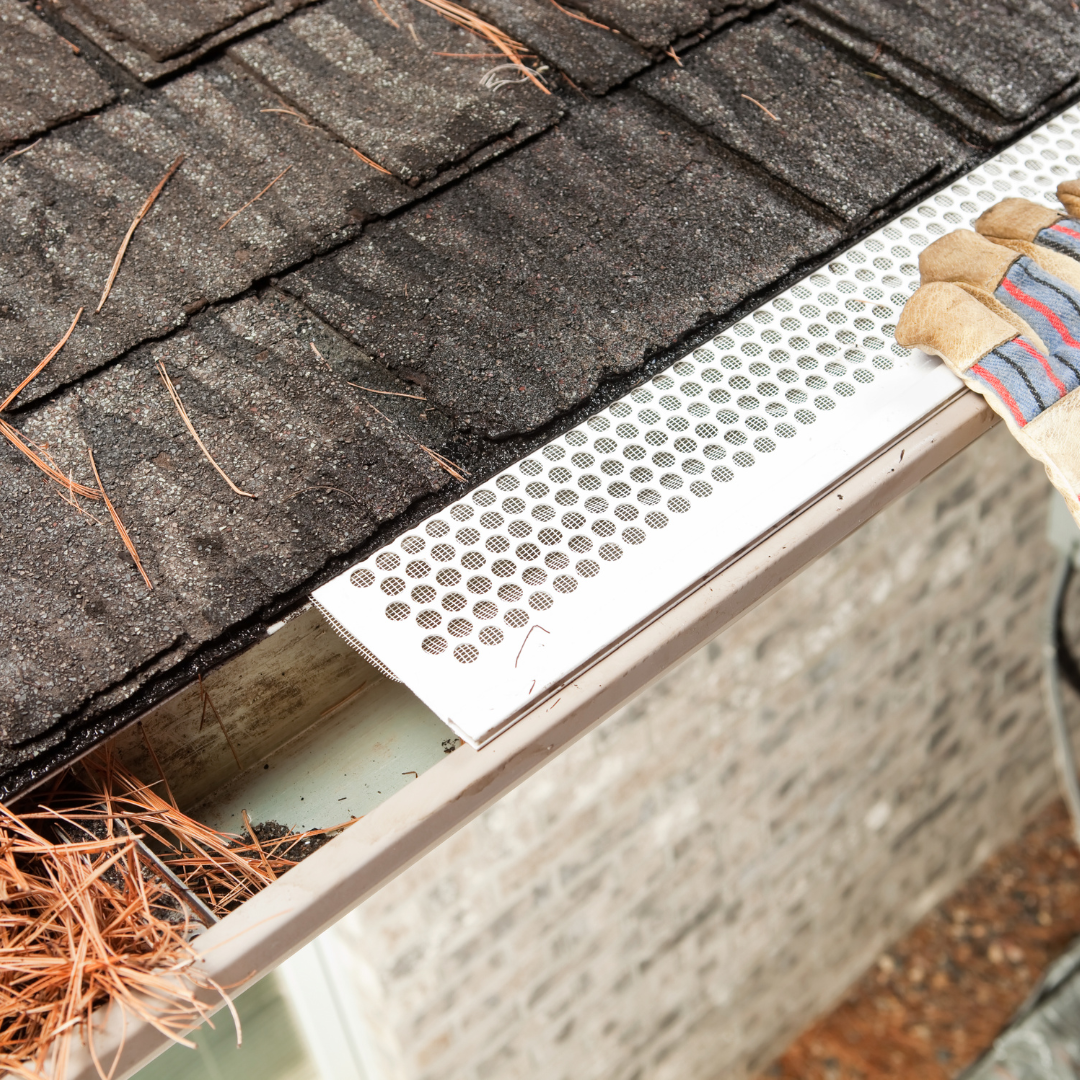As renewable energy sources become more prevalent in our society, it is important to understand the importance of taking proper care and cleaning of solar panels. Solar panels are very effective at harnessing the sun’s energy and converting it into electricity. However, it is important to remember that the effectiveness of solar panels can be significantly decreased if they are not regularly cleaned and maintained.
The biggest issue with not cleaning solar panels is that dirt and debris can accumulate on the surface of the panels, blocking their ability to absorb the sun’s energy. This can lead to a decrease in the amount of energy that the panels are able to produce. This decrease can be quite substantial if the panels are not regularly cleaned. Not only is the energy output reduced, but the panels can also become less efficient at generating energy, which can lead to an increase in energy bills.
In addition to the decrease in energy output, solar panels can also suffer from other issues if they are not regularly cleaned. Dirt and debris can act as insulation and trap heat in the panels, leading to a decrease in their efficiency and an increase in their operating temperature. This can lead to a decrease in the lifespan of the panels, as well as potential damage to the panels or even fires.
The good news is that cleaning solar panels is a relatively simple process. Typically, all that is needed is a soft cloth and some mild soap and water. It is important to make sure that the panels are completely dry before they are put back in the sun, as even small amounts of water can cause damage to the panels.
Overall, it is important to keep in mind that regular cleaning of solar panels is essential for optimal performance and efficiency. With proper maintenance, solar panels can be a great way to generate clean, renewable energy for many years to come.
Like our experienced solar panel cleaners to take care of it safely for you? Get a quote today.


